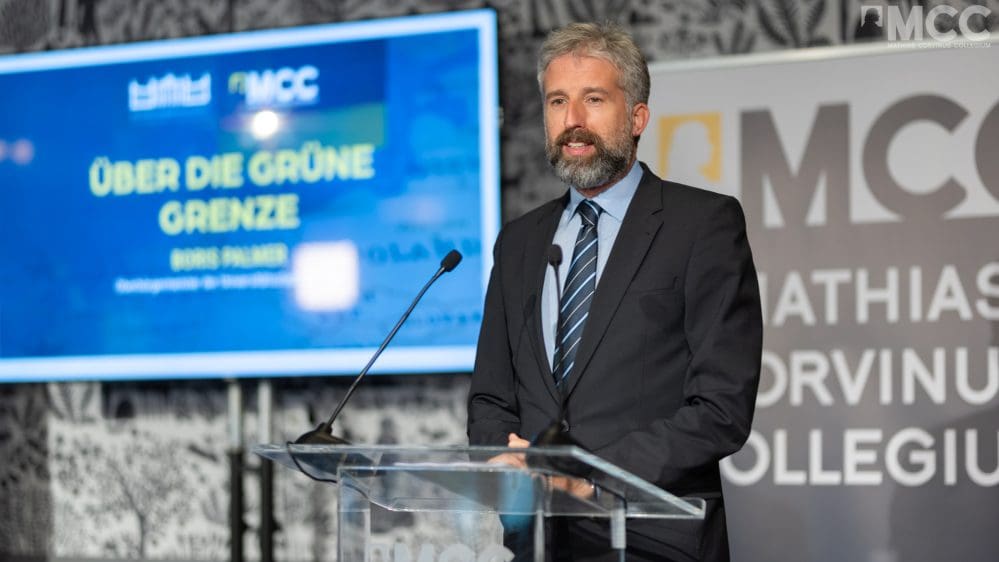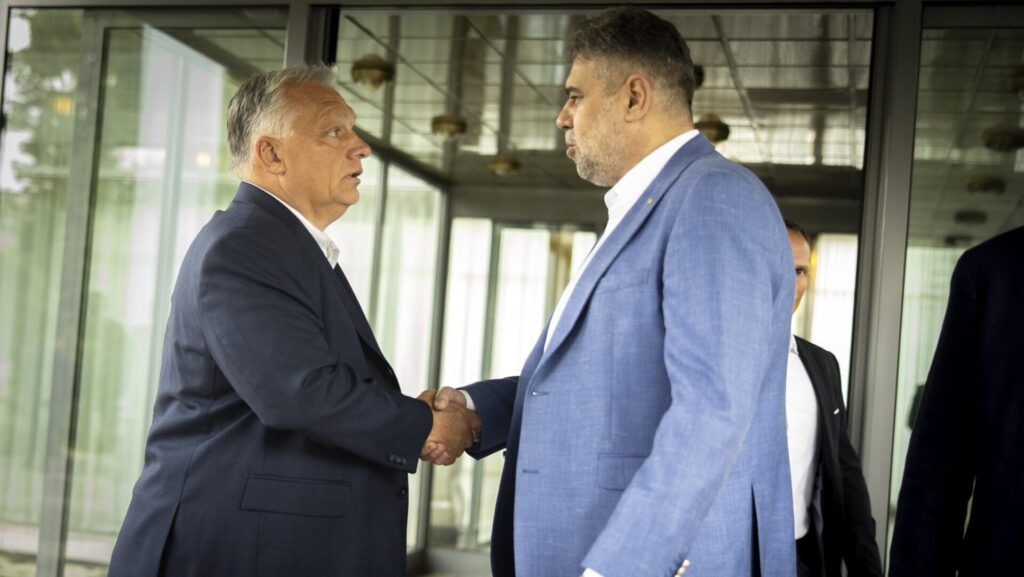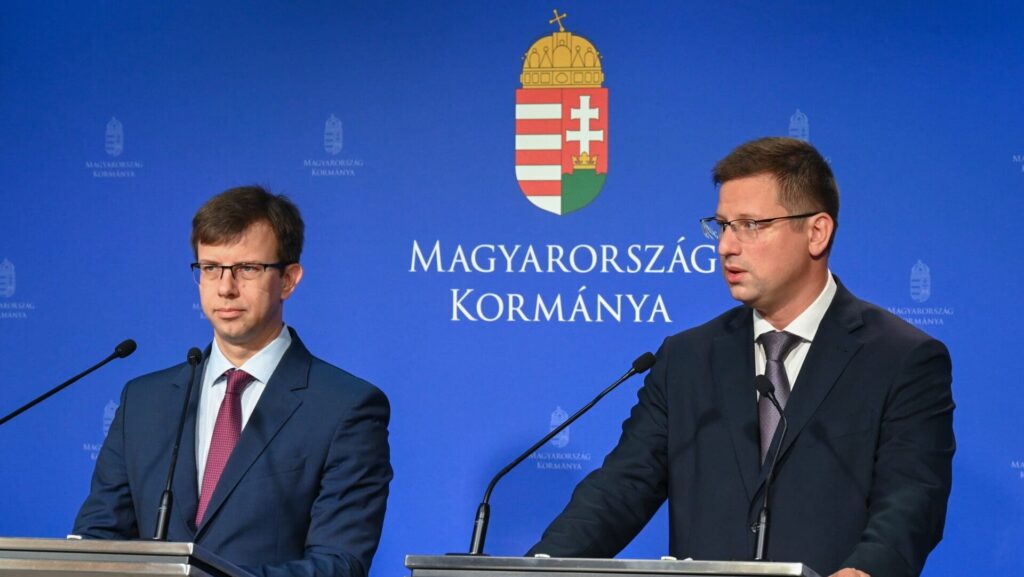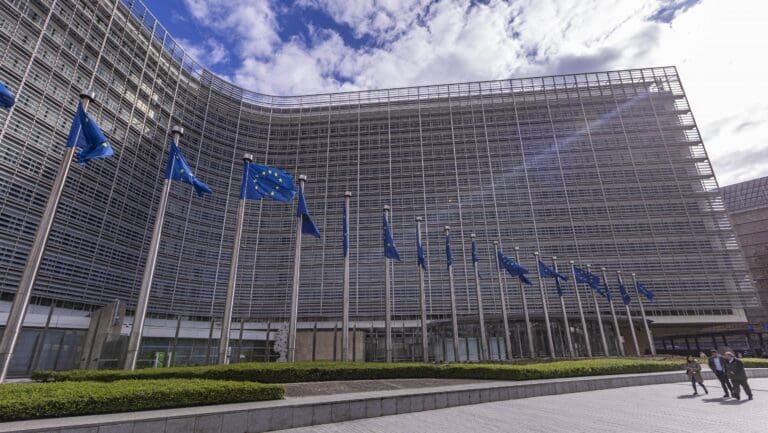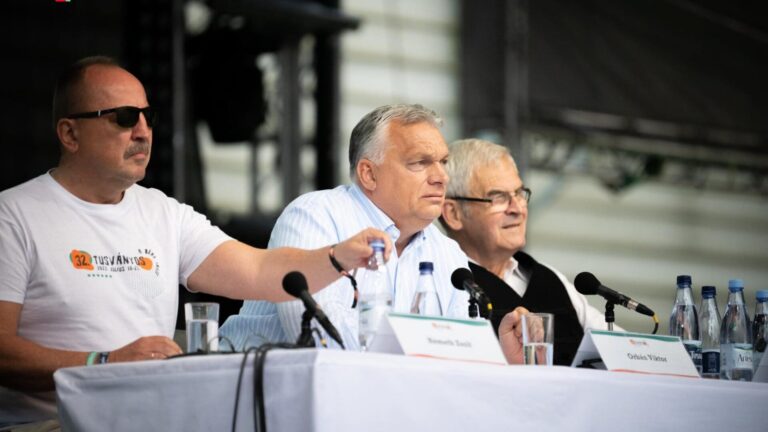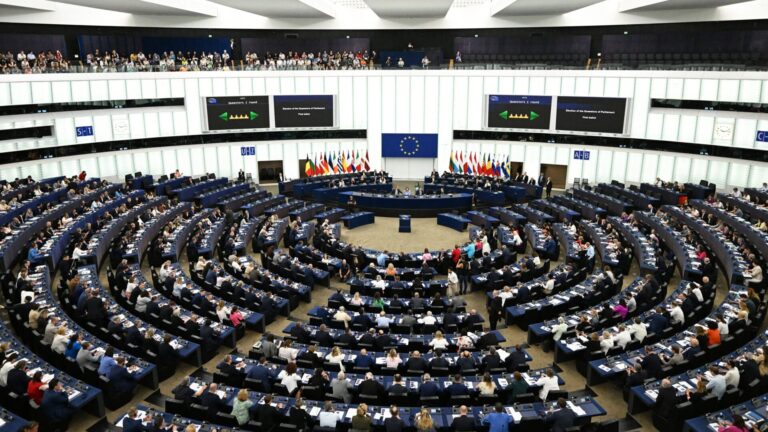It has been quite a busy week in Budapest for Boris Palmer. Once a wonder child of the German Greens (Bündnis ‘90/Die Grünen), Palmer has been the mayor of Tübingen, a university city in Southwest Germany since 2007. This is spectacular longevity in an elected office, even by German standards—but that is not the reason why Palmer was invited to the Hungarian capital by the Mathias Corvinus Collegium (MCC).
Boris Palmer: A Fallen Wunderkind
Indeed: Palmer gradually transitioned from wunderkind to problemkind within his party. Assuming office at just 35, he has been in the spotlight for almost the entirety of his political career. While launching a miniature version of Verkehrswende—the policy of transitioning passenger and cargo transport, mobility and urban planning to more sustainable means—, something that has always been on his party’s agenda, Palmer constantly made the headlines with his takes considered provocative by his party’s mainstream on topics like migration, racism and cancel culture.
Mind you, Boris Palmer has had a particular forte compared to other leading Green politicians of the 2010’s:
he was actually able to win successive elections.
Although it was only the 2021 German general elections that revealed the absolute doctrinaire nature of the Greens to most of the electorate and the European public, one thing seems to be certain: tangible results certainly can function as a shield for dissenting politicians like Palmer even in such parties. For a while, at least.
In the past couple of years, an increasing number of Green leaders (and wannabe leaders, of course) have pushed for expelling Palmer from the party. Not without any reason, though: in 2021 he used the N-word in a Facebook thread about racism allegations related to former national player Dennis Aogo and Arsenal legend Jens Lehmann. Although the N-word has a considerably less demeaning connotation in German than in English, Palmer’s action was more than uncalled for. Later on, he tried to defend himself by stating that his comment was meant to be ironic— all in vain. In May 2021, Annalena Baerbock, then her party’s candidate for chancellor, now Germany’s foreign minister, announced that Palmer had lost the Greens’ support and that the party board was going to file for his expulsion—amidst the run-up to that year’s general election.
His Political Exile
The fact that the Greens have decided not to expel Palmer eventually should not come as a surprise to anyone remotely familiar with German politics. Such proceedings are usually very lengthy and lead to a lot of negative media coverage for the party, while giving the perfect opportunity for dissenting politicians to establish themselves as victims of party cancel culture.
Accordingly, the Greens and Palmer have agreed to the latter resting his membership until the end of 2023. Not everyone was so indulgent, though: at a conference on migration in Frankfurt this year, a group of left-wing extremists confronted Palmer for using the N-word, calling him a Nazi. Not only did Palmer not tolerate that but he even found a way to worsen his already dire situation: first he said that comparing him to a Nazi for using the N-word ‘is no different than a yellow badge, then he went on using the word a couple of more times at the conference. Clearly, it was over for him. In early May, he announced that he would take a break from his office and seek professional help to improve his anger management skills. Palmer also stated that he would leave his party after 27 years.
The Grand Budapest Palmer
The fact that it was the Hungarian capital where Boris Palmer chose to pop up after the turbulences of the last couple of months may sound surprising, but there are some good reasons for it. Germany, and especially Palmer’s native Baden-Württemberg, is of crucial importance both in Hungary’s foreign and economic policy. Despite the seemingly cold official relations and Hungary’s traditionally awful German media image on the surface, the cooperation between the parties is still intense on a number of levels. Further, there is an unmistakable endeavour on the Hungarian government’s side to revitalize its connections with prominent members of the intellectual circuits of leading German parties—with the standard-bearer of this initiative being the very German–Hungarian Institute for European Cooperation at MCC, which welcomed Palmer as its guest in early September.
But what was in it for Palmer? Certainly,
this appearance was a great opportunity for him to test his action radius and show himself on the international level
—without having to fear angry left-wing groups protesting on the spot or very critical questions from an audience largely unfamiliar with his controversies in Germany.
His Budapest gig did not go unnoticed by mainstream German news outlets like the left-wing Süddeutsche Zeitung or the Frankfurter Allgemeine Zeitung—the latter even dedicated a detailed report to his appearance. With mainstream media attention secured, the mayor could have easily sat back and taken his shots at Germany’s governing elites while presenting himself as the victim of Green cancel culture, which would have been music to many Conservative ears in Hungary anyway.
But despite his fame as a troublemaker, Palmer was not very vehement in Budapest. He defended Hungary’s right to have its own opinions in controversial questions like that of the mass migration into Europe, but at the same time criticized the state of the rule of law and the widespread corruption in the country. Is it possible that Hungary is not so innocent when it comes to its bad reputation in some countries, he even asked the audience.
Palmer pleaded for more dialogue between Hungary and Germany, which happens to be a very common but also quite convenient cliché in the bilateral relationship. Dialogue, he said, works better when everyone asks questions instead of ‘preaching from the moral high ground of their own convictions‘.
An Orbán-Versteher in the Making?
Apparently, MCC’s invitation did not only include this event, but also a series of meetings with those representing the Hungarian government’s intellectual hinterland. For one, Palmer held talks with Balázs Orbán, the PM’s influential political director, who also happens to chair MCC’s Board of Trustees. He also visited the Energy and Family Affairs ministries.
‘Criticism almost always has a kernel of truth’, Palmer wrote in a Facebook post about the family policy measures implemented by the government in the last few years, ‘but it overlooks too much.’
He appeared to be quite genuinely astonished by the policies themselves.
‘From a German perspective, it [the Hungarian government’s extensive policy to support families] sounds somehow eccentric, but to be sure, so remote that one almost cannot imagine that one of our parties would suggest or opt for this. It is possible in Hungary because the vast majority wishes that this small nation had more offspring’, he concluded.
Palmer seems to have developed a certain kind of understanding towards the positions of the Hungarian government—but would that make him an Orbán-Versteher?
He certainly would not be the first to become one after spending some time with MCC in Budapest. Just recently, the German political scientist Werner J. Patzelt published Ungarn verstehen (Understanding Hungary), a monography aiming to ‘close the gap between perceptions and actual knowledge’ about this country. The fact that Patzelt aimed to fill in this ‘gap’ after spending a year as MCC’s leading guest lecturer and just before accepting the collegium’s invitation to its brand-new Brussels branch suggests that the months he spent in Budapest formed not only his scientific view of Hungary, but also his position towards Hungary’s government and its nomenklatura. The same could be said about the former German intelligence leader Hans-Georg Maaßen, who, after spending just a couple of days with MCC last year, still praises the Hungarian government on Twitter from time to time.
Despite all this,
it still seems very unlikely that Boris Palmer would move on to establish himself as one of the few Orbán-Verstehers
in the German political mainstream. For that is quite a dangerous game to play: anyone showing the slightest trace of understanding towards the supposedly ‘anti-democratic’ and ‘anti-European’ Hungarian government is bound to face backlash from the most powerful German media outlets—and in his current situation, this is the last thing Boris Palmer needs.
This visit is more likely to remain an interesting field trip in his political journey rather than becoming a formative deep dive into the heart and soul of Hungarian politics. Nonetheless, the realization of this visit is certainly a spectacular win for MCC. After all, not too many prominent politicians from the German Left (and even fewer that can be portrayed as victims of cancel culture) visited the institute before Boris Palmer—and certainly, not many have seen to such intense media attention back home.

